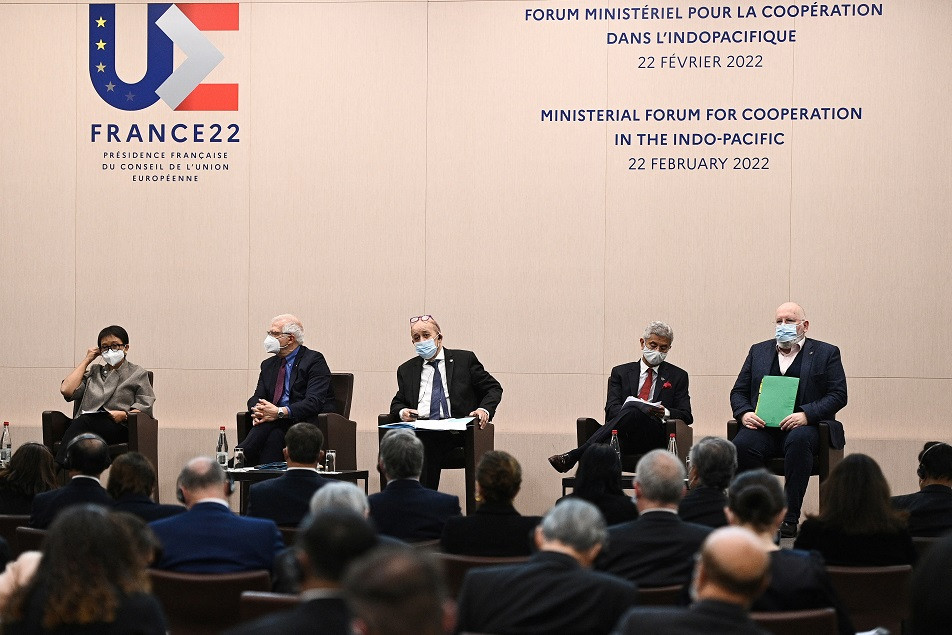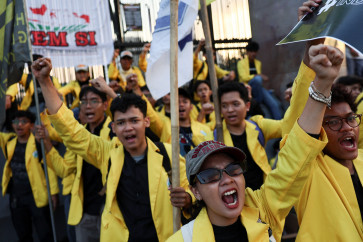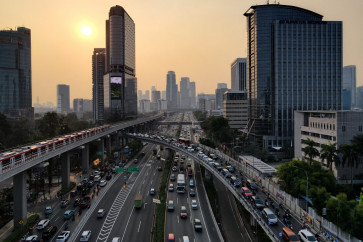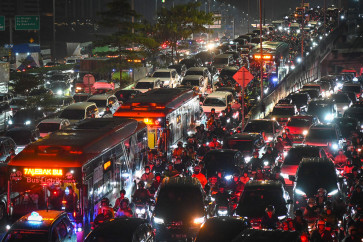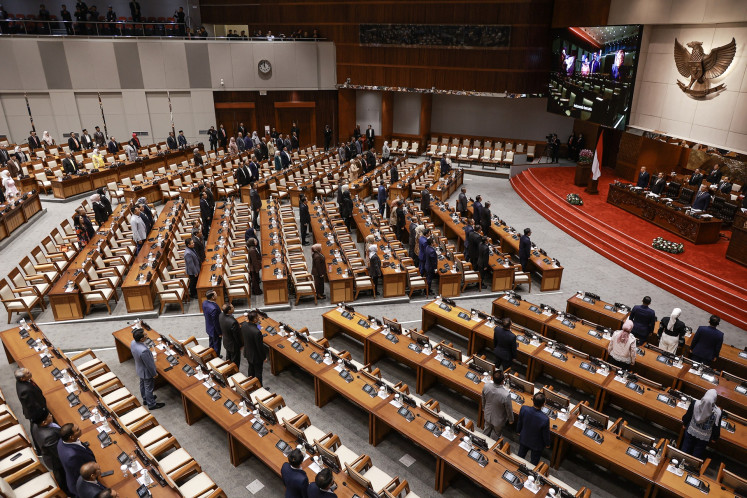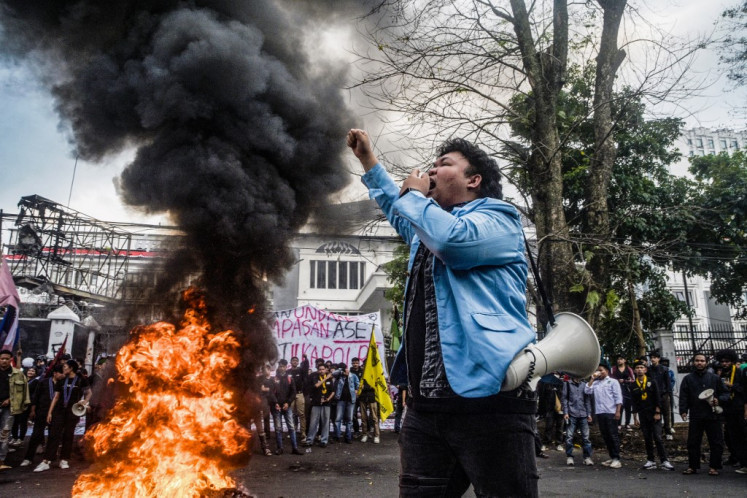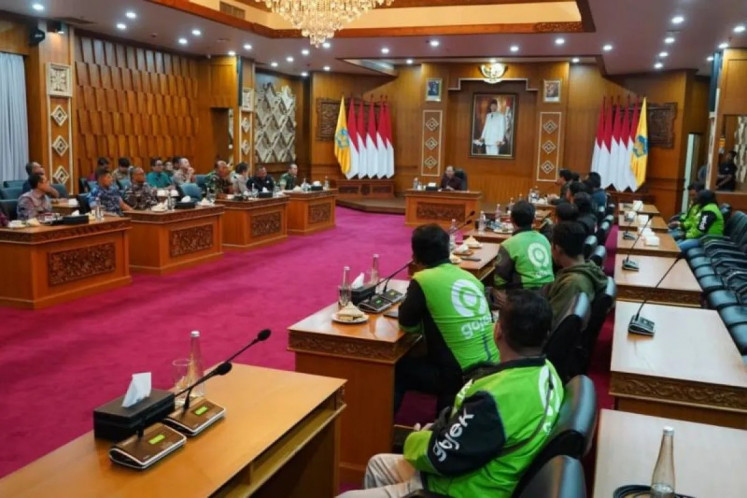Popular Reads
Top Results
Can't find what you're looking for?
View all search resultsPopular Reads
Top Results
Can't find what you're looking for?
View all search resultsMacron's EU proposal: A potential mechanism for Southeast Asia?
Macron’s proposal for a looser European entity could very well be applied in Southeast Asia to coexist alongside ASEAN.
Change text size
Gift Premium Articles
to Anyone
O
n the same day intended to celebrate Europe and the voice of its citizens, several European Union members issued a joint declaration that not only caused frustration, but also served as a good reminder of the political reality.
Europe Day, celebrated on May 9, commemorates the Schuman Declaration, named after former French foreign minister Robert Schuman who proposed the pillars of the European integration project.
This year’s celebration was even more important, because it presented the final recommendations of the Conference on the Future of Europe, a bottom-up initiative that involved and engaged thousands of citizens across the EU.
The recommendations, which cover the entire spectrum of policy-making, including stronger commitment to climate change, more inclusive and democratic institutions to harmonize living conditions across the EU, equal access to digital infrastructures and measures for a stronger European identity, are the outcomes of a very extensive and holistic effort in deliberative democracy.
Some of these will inevitably require a change in existing treaties, a complex and lengthy process that will entail the consent of all member nations.
That’s why it was painful, at least for someone who believes in a stronger and more united Europe, to read that some members less enthusiastic about integration preemptively released a note objecting to any changes to the basic laws of the EU.
Yet, it was also not surprising.
Hungarian Prime Minister Orbán is one of the most persistent euro sceptics and his government is facing multiple legal challenges from EU institutions. In addition, Nordic countries like Denmark, Sweden and somehow also Finland are very weary of any steps toward an “ever closer Union”.
At the same time, there is a lot of pressure to allow Ukraine to join the EU, itself a very long and complex process that also involves a very long waiting list of nations.
It is against this backdrop that French President Emmanuel Macron, just inaugurated to his second term, unveiled a proposal for a different political community alongside the EU: a looser entity that could also include the United Kingdom, Ukraine, Georgia and other countries not yet ready to become full EU members.
The truth is not that some countries are as yet unready to join the EU. After all, Albania and North Macedonia are very close to start formal negotiations in a process that will automatically bring them into the fold.
The real problem is that the EU itself is not ready. Its governance is too complex and filling its democratic deficit, despite a stronger and a more assertive European Parliament, is still too difficult. Moreover, it still requires unanimity in many areas, including foreign policy.
That’s why Macron’s proposal is very interesting, because it could take away some of the pressures stemming from the governments anxiously waiting to join the EU, and it could perhaps accommodate the political reality of some current members less interested in going further in a common European project.
His proposal could offer a way to systematize the idea of a “two-speed” Europe, a concept that, considering the euro or cooperation in judicial and crime policies, already exists in practice.
Could it be possible to imagine a similar solution for Southeast Asia?
Perhaps reflecting on this daring question might help in imagining a unanimity-based regional cooperation on the one hand and on the other, parallel but standing on its own, cooperation that focuses on stronger integration but is more agile and less cumbersome.
After all, there is no sacred text that forces (and constrains) ASEAN member states to cooperate in all areas, nor is there any veto mechanism impeding any member state from starting another regional mechanism that is geared more toward a bolder regional project.
We could have a new regional architecture in which certain Southeast Asian nations could invest without abandoning ASEAN and its ossified rules.
This new mechanism of Southeast Asian integration would be totally independent and autonomous, though obviously there will be certain links with the present bloc.
The more progressive and democratic ASEAN camp, made up of Indonesia, Malaysia, the Philippines (hopefully, the upcoming Marcos Jr. presidency won’t do worse than Duterte’s) and Singapore, and perhaps one day also Thailand and surely Timor Leste, could double down on the idea that the region can do more and better, and be much speedier.
They could agree to do so in certain domains of policy-making where there is a willingness to act more decisively, while for other domains like trade and connectivity, they continue to rely on the existing ASEAN structure.
I am aware that this proposition might be provocative enough to spark political debate on the future of Southeast Asia, but what we need right now in the region is more talk and exchange of ideas on what the region would look like 20 to 30 years from now.
Yes, ASEAN is working on a new vision document, but we need to shift gears here and talk seriously about the future.
The European project, as it is now, is reaching its last mile. It is inevitable that it will take further steps toward further integration. If you think about it, the same sense of inevitability also exists in Southeast Asia.
True, the EU is already a proto confederation in many ways, while ASEAN is several “galaxies” away from that.
Perhaps we should start whining and grumbling about ASEAN.
Pragmatically speaking, ASEAN is a useful platform that brings together a very diverse group of nations, including several authoritarian governments with which it is better to maintain a working relationship. Yet, some Southeast Asian leaders are realizing that ASEAN as it stands now is not best suited to solving some of the most existential problems of this era.
Together, these leaders and their nations can work as a team to bring in new ideas to match their people’s aspirations, starting from fundamental freedoms, inclusion and equality and unyielding commitment to listen to the voices of their peoples.
***
The writer regularly comments on social inclusion, youth development, regional integration and the SDGs in the Asia-Pacific context.

